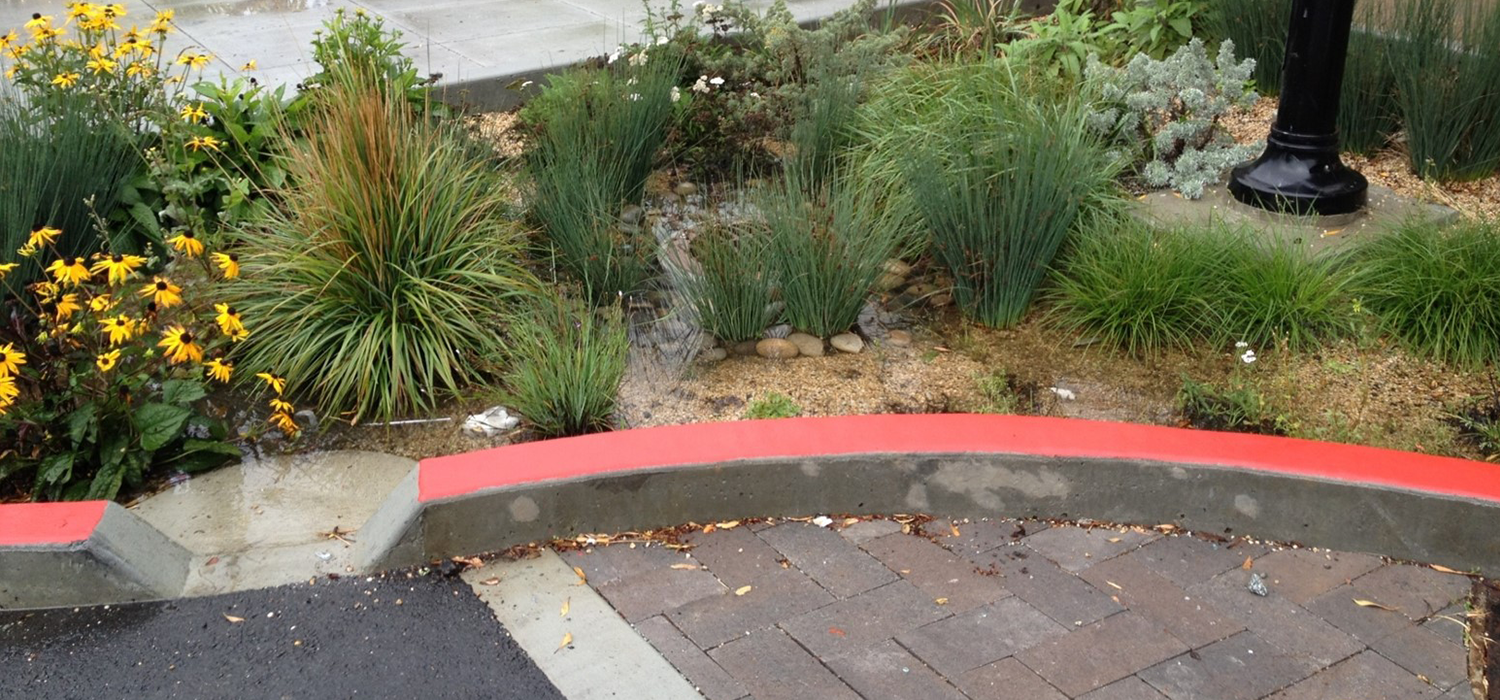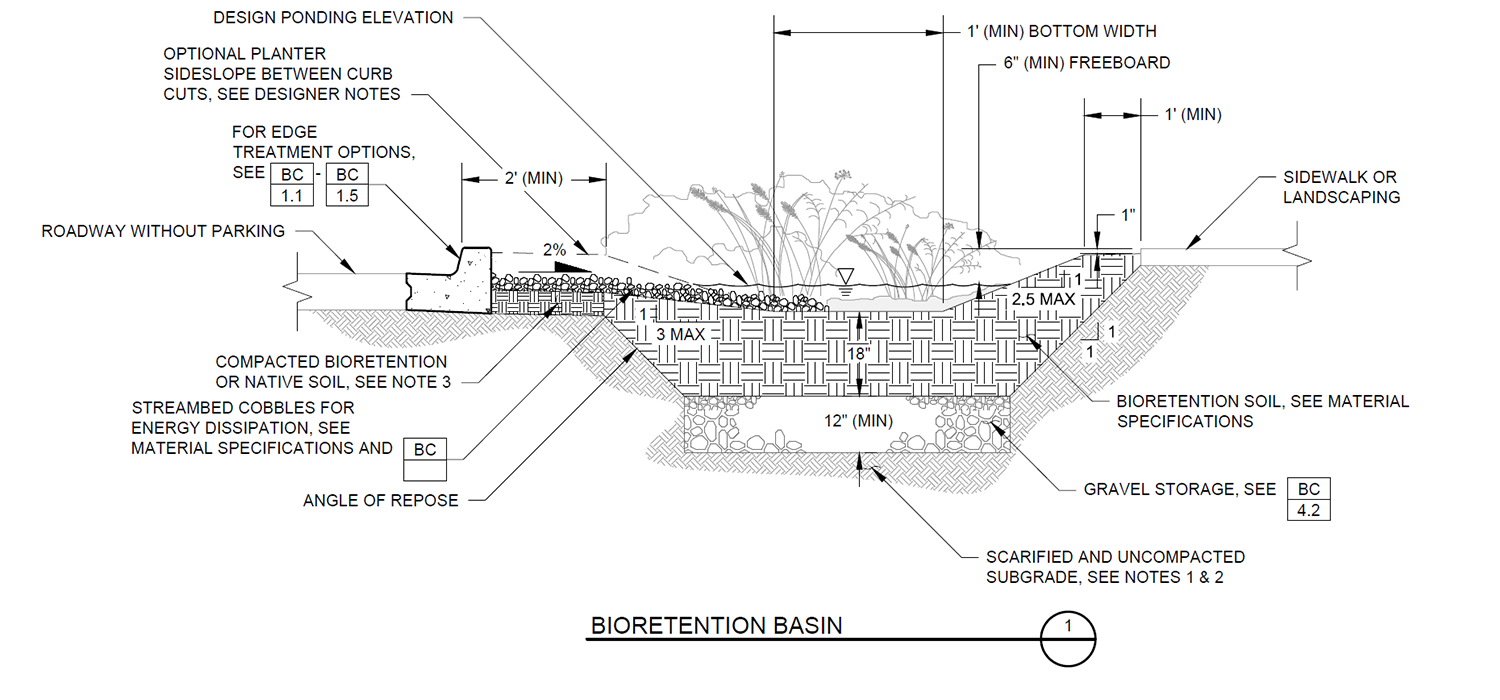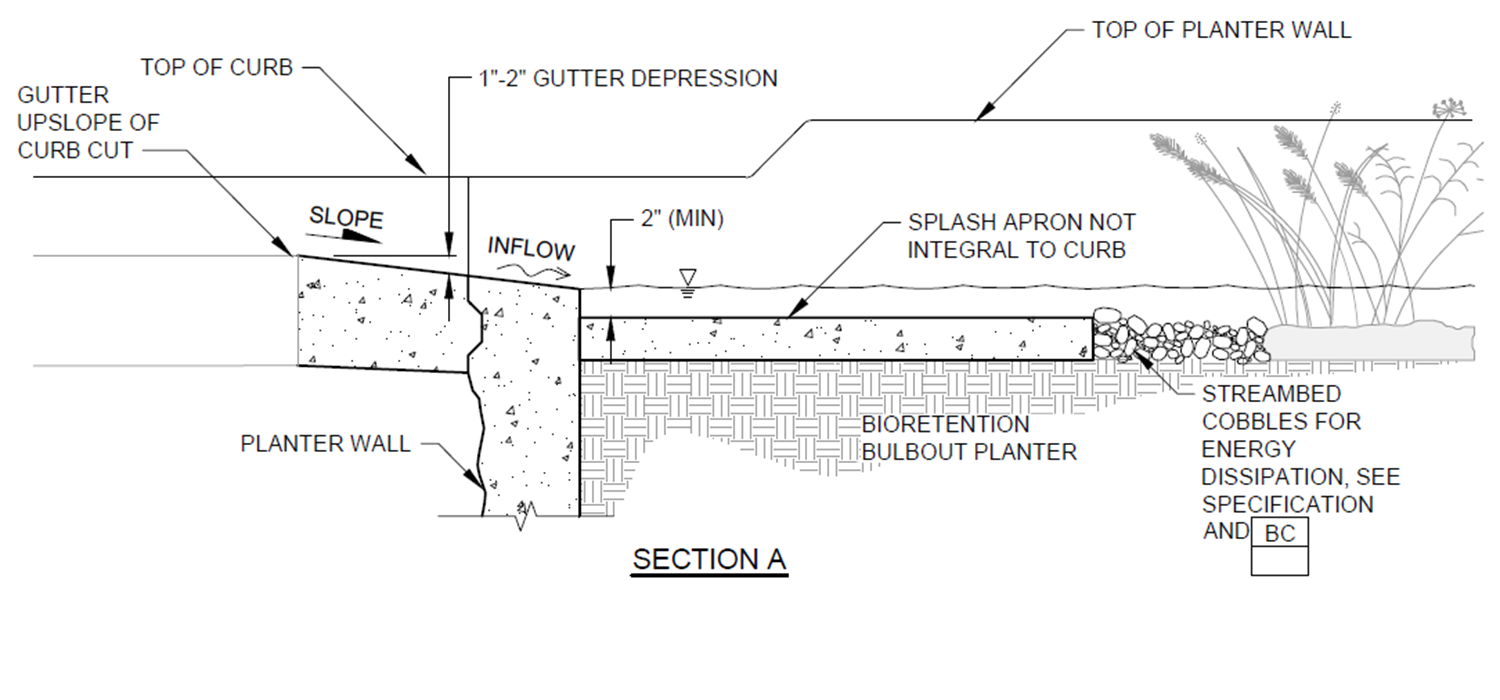Typical GSI Details + Specifications
SAN FRANCISCO, CA



< PROJECTS
Lotus worked closely with a leading team of consultants and the SFPUC Urban Watershed Management Program to develop typical plans and specifications for Green Stormwater Infrastructure (GSI) facilities that manage stormwater within the City and County of San Francisco. The Typical GSI Details+ Specifications aim to assist public and private sector design teams in developing construction-level GI designs that meet regulatory standards. These guidance documents incorporate the latest national best practices, while taking into consideration both types of San Francisco’s collection systems (combined and separate storm sewer systems) and the City’s varied physical and environmental conditions.
Due to previous and current involvement with other SFPUC programs such as the Stormwater Design Guidelines, BMP Fact Sheets, the Sewer System Improvement Program Early Implementation Projects, and GI Construction Training, Lotus was able to apply our expertise to develop typical plans and details that are consistent with City regulations, practices, and goals, while considering lessons learned from early GSI construction projects within the City.
The initial version of the details and specifications focus on the most common technologies used in the City’s urban conditions: bioretention, permeable pavement, and subsurface infiltration systems. The specifications were developed in coordination with various City agencies, industry experts, local contractors, and regional suppliers. Version 2, released in 2016, is a comprehensive and user-friendly manual that is now serving as a new national model for green infrastructure design in metropolitan areas. Several Bay Area municipalities are using this set of typical details and specifications as the key reference point in the development of their own details, specifications, and designer guidance manuals. In partnership with Herrera, Lotus is currently incorporating updates to the details + specifications to be released in 2022.





